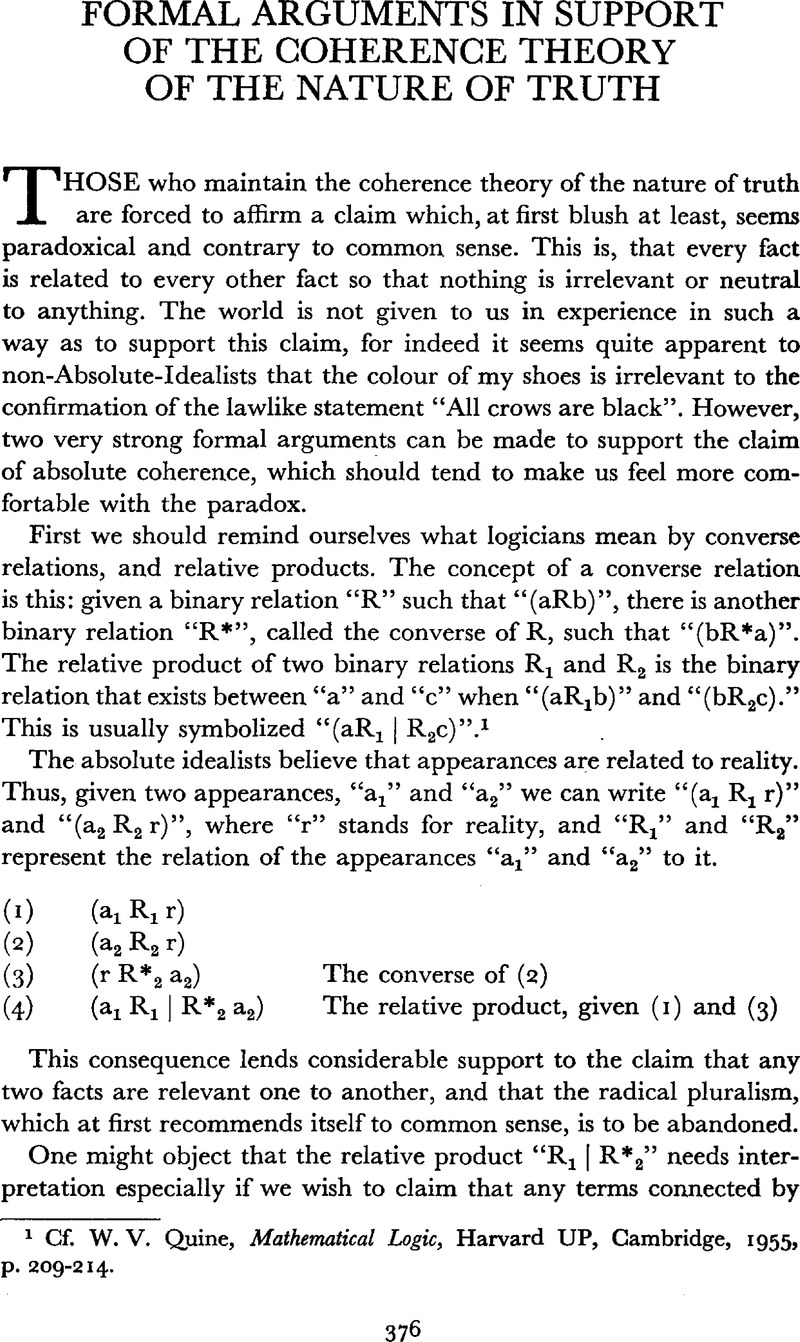No CrossRef data available.
Published online by Cambridge University Press: 09 June 2010

1 Cf. Quine, W. V., Mathematical Logic, Harvard UP, Cambridge, 1955, p. 209–214Google Scholar.
2 It might be interesting to note that we have not insisted here on the internality of the relevance relation. Absolute idealists claim that all relations are internal. However, if the modifier “internal” is universally applicable to all relations, then it loses its meaning, for it makes relations and internal relations extensively identical. It seems more profitable to treat “internal” not as a simple property of a relation, but rather as a second order binary relation, whose subject term is itself a relation. Thus whether a relation is internal or not must be decided with respect to something else. A specific relation may simultaneously be both internal and external, with respect to different entities.
3 The paradoxes of confirmation are fully discussed in Scheffler, I., The Anatomy of Inquiry, Random House, Toronto, 1963, p. 236 ffGoogle Scholar.